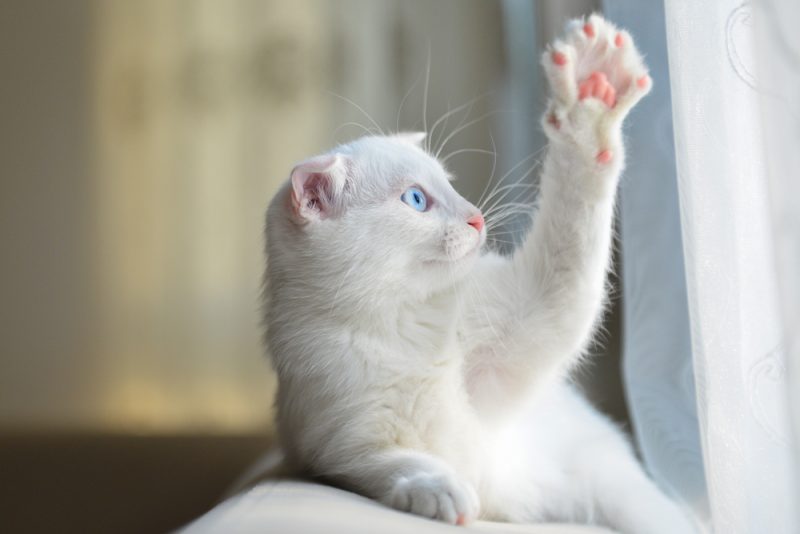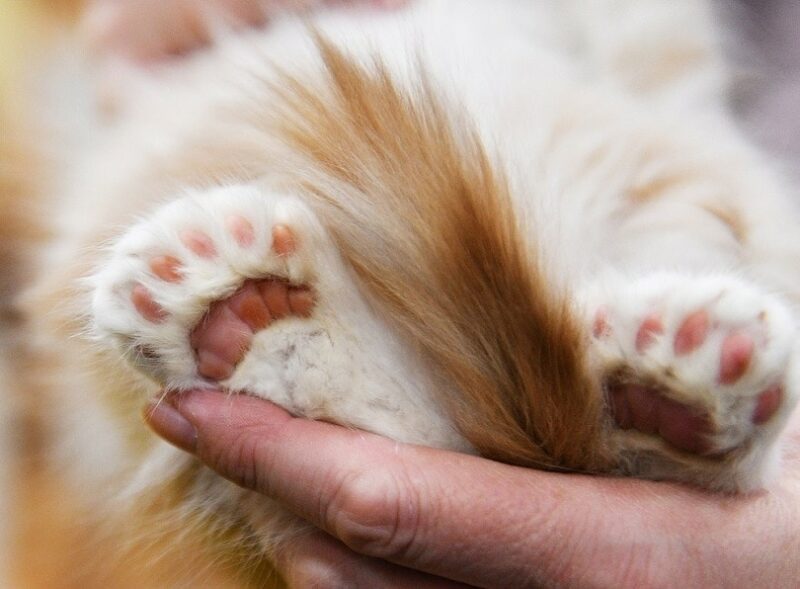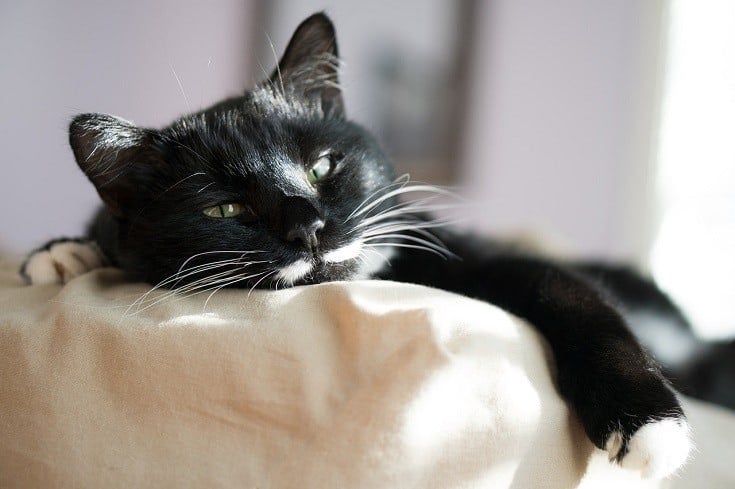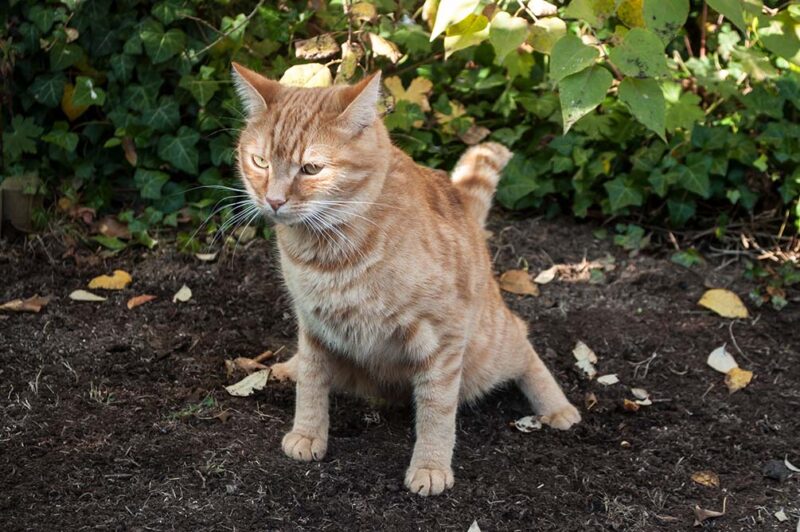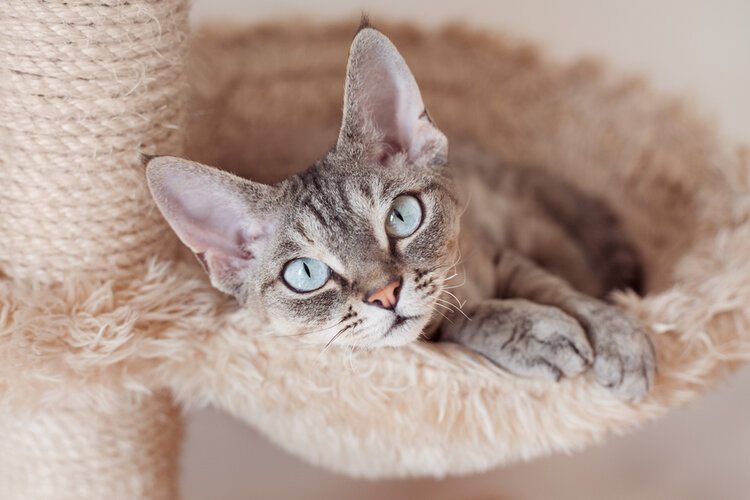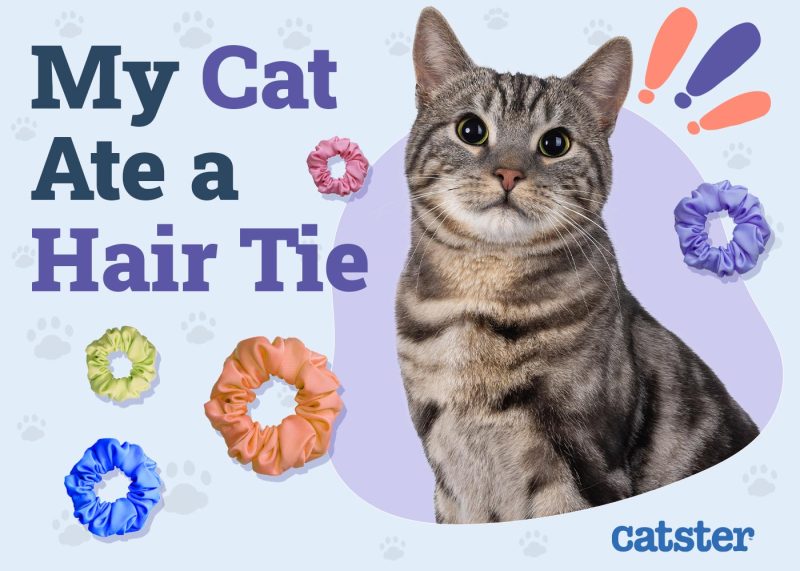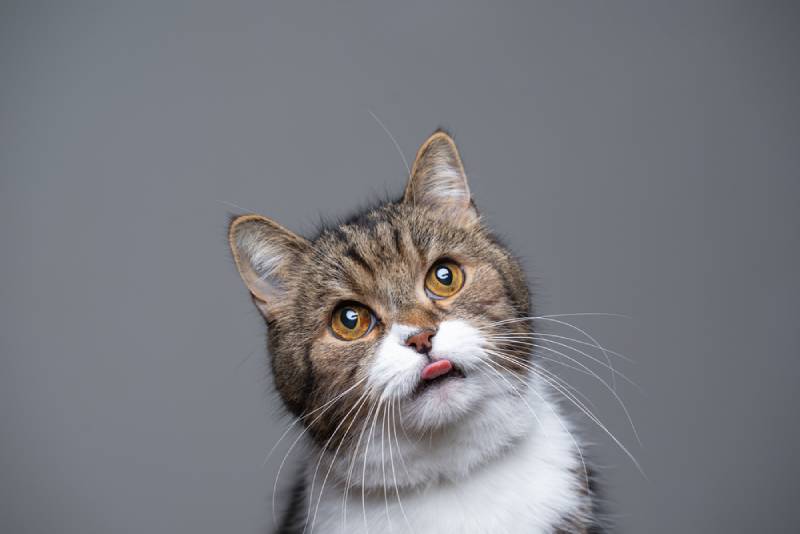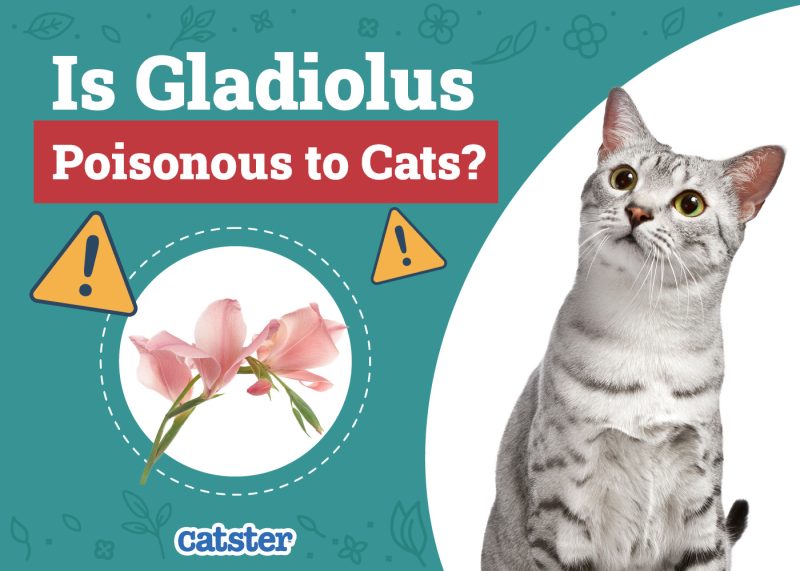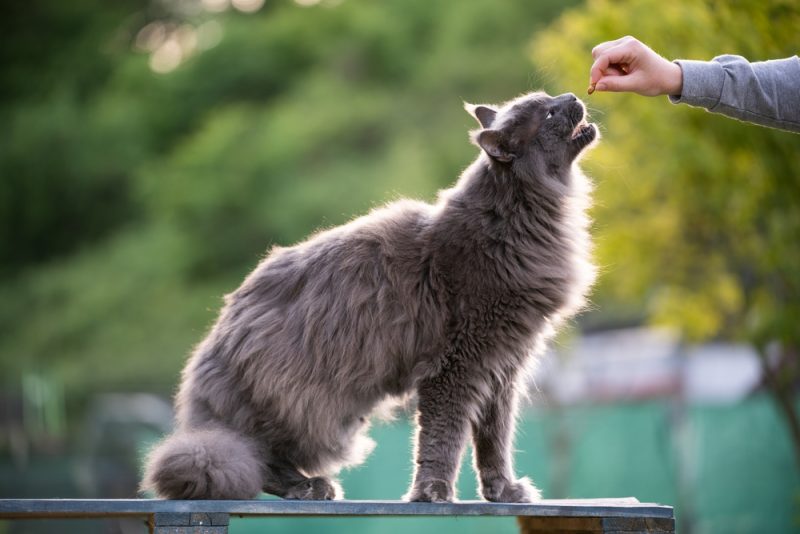In this article
Have you ever noticed your cat twitching uncontrollably or showing some type of repetitive behavior, such as excessive grooming, tail chasing, or frantic biting? Such a display may point to a neurological issue, and to some, these the signs may appear similar to Tourette syndrome (TS), which is characterized by “tics.” However, despite the signs being similar, cats do not develop Tourette’s, but they can develop other conditions with similar appearing behaviors such as feline hyperesthesia syndrome. Eerily similar, let’s explore this condition so you know the signs to watch for should your cat suddenly display concerning behavior.

What Is Feline Hyperesthesia Syndrome?
Feline hyperesthesia syndrome (FHS), also known as “twitchy cat syndrome” or “rolling skin disease,” is a condition a cat can develop that’s similar to having nervous tics. The condition generally involves involuntary muscle contractions and associated changes in behavior. The condition is not widely understood, but fingers point to an underlying neurological, psychological, or dermatological issue.
Before FHS can be diagnosed, other similar conditions must be ruled out.
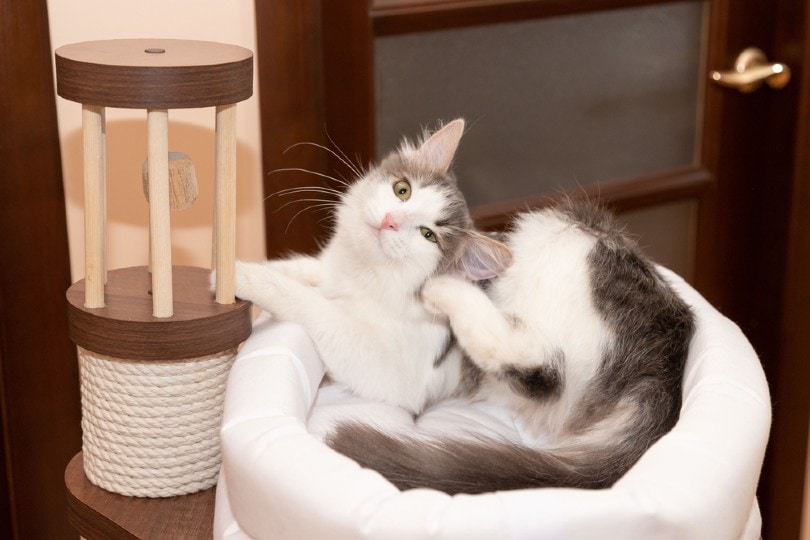
What Are the Signs of Feline Hyperesthesia Syndrome?
Typically, a cat with FHS may display intermittent episodes or bursts of signs related to the condition, lasting 20 to 30 seconds at a time. To better understand FHS, here are signs to watch for that could correlate to this syndrome:
- Twitching of the skin on the lower back, either after touching the area or for no apparent reason
- Dilated pupils
- Excessive meowing or other noises
- Brief bursts of jumping or running (similar to being startled)
- Tail chasing
- Licking and/or biting hind paws, tail, rear, or lower back

Is Feline Hyperesthesia Syndrome Genetic?
FHS can occur in any cat. At this time, there is no evidence of a genetic link to FHS; however, some cat breeds tend to be more prone to develop the condition, such as the Siamese, Persian, Abyssinian, and Burmese. The condition is more common in younger cats, with signs appearing in the first few years of life. Most cats diagnosed are under 7 years of age.
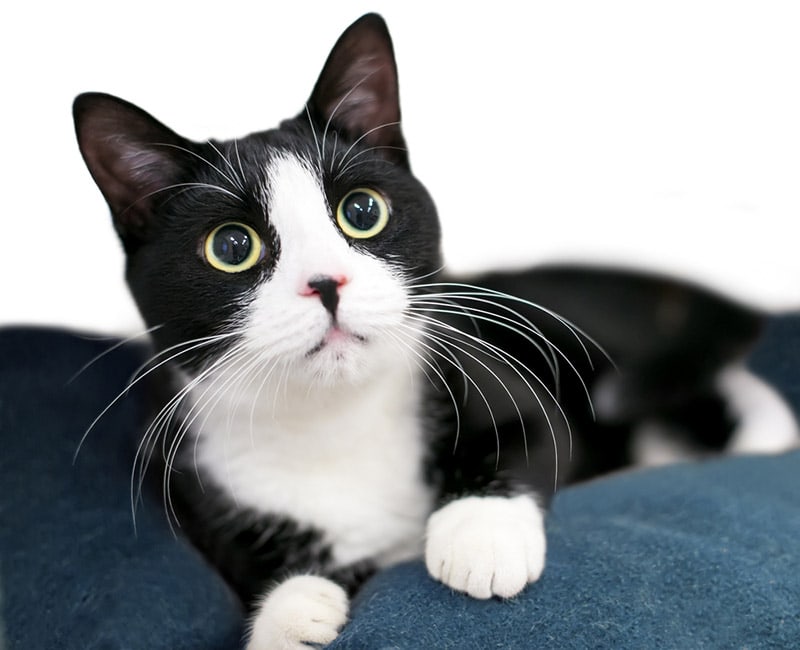
What Causes Feline Hyperesthesia Syndrome?
Despite the fact that no one knows for sure what causes FHS, the causes are generally considered either dermatological (skin issues), neurological (nervous system), or psychological. These types of issues could consist of allergies or an immune system problem, seizures or neuropathy, or even obsessive-compulsive disorders.
Another cause could potentially be food hypersensitivity. A recent study showed that one cat’s symptoms disappeared after going on a hydrolyzed protein diet, which is essentially proteins in food that have been broken down to a size too small for the immune system to recognize. Protein is a common culprit of food allergies in cats and dogs, and traditional cat food contains proteins of normal size, which could trigger allergic reactions.
How Is Feline Hyperesthesia Syndrome Diagnosed?
Before FHS can be diagnosed, a veterinarian will look for other causes of the sensitivity, such as arthritis, allergies, and parasites.
Medication trials may also be administered, such as medications targeting itchiness and pain. An evaluation for a neurological condition may also be performed, including a complete blood panel, X-rays, and even a CT scan or MRI.
If you need to speak with a vet but can't get to one, head over to PangoVet. It's an online service where you can talk to a vet online and get the advice you need for your pet — all at an affordable price!

Can Anxiety Cause Nervous Tics in Cats?
Anxiety and stress can bring about signs similar to tics, such as over-grooming, pacing, and excessive meowing. Anxiety in cats can occur in stressful situations, like if you’ve made a move into a new home or added a new human or other pet to the mix. Even the loss of a loved one can cause anxiety in cats. Other signs of stress involve going potty outside the litter box and hiding.
How Is Feline Hyperesthesia Syndrome Treated?
Cats with FHS can often find relief with treatment, and the condition can be managed to give a cat a good quality of life. However, a cat may never be cured of the condition. Specifically, the type of treatment administered depends on the signs.
Corticosteroids have been known to help improve skin inflammation and decrease sensitivity, and omega-3 fatty acids may be suggested to add to your cat’s diet. Gabapentin is used to treat seizures in cats, and the drug also aids in managing pain from over-sensitive nerves. Behavior modification drugs may also be prescribed, such as fluoxetine and clomipramine.
Ensuring your cat has plenty of toys for mental stimulation can also help distract your cat from compulsive grooming, and establishing a daily routine can help relieve anxiety, which adds to FHS signs.

Final Thoughts
It’s imperative to take your cat in for an examination if they display any signs described in this article. Though the treatment varies depending on signs, your cat can generally find relief and live a normal life with medications. Remember that “tic” signs may not be FHS, but it’s essential to have your cat examined to get to the root of the problem.
Featured Image Credit: Orhan Cam, Shutterstock
